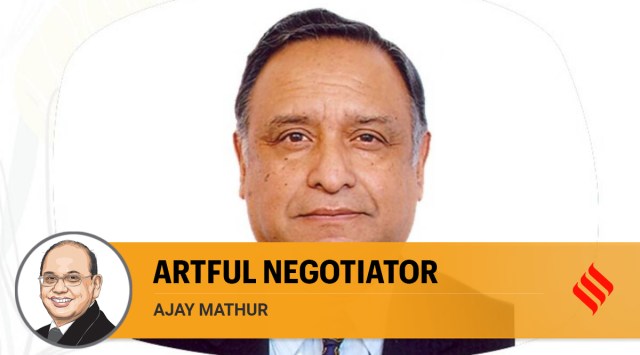
It was with great sadness that I learnt of the passing away of Ambassador Chandrashekhar Dasgupta. I had the honour of being closely associated with him during his years as a climate negotiator and at The Energy and Resources Institute (TERI), and have greatly admired his ability to clearly and succinctly state his (and the national) point of view.
Most importantly, I learnt from him that diplomacy and negotiations were not about scoring debating points, but about guiding the discussion so that we reach a common “landing ground”, and hopefully, a landing ground of our preference.
Nowhere was this more evident than in the discussions at the INC (international negotiating committee) for the UNFCCC (UN Framework Convention of Climate Change), where he stoutly put forward the position that developing countries could not take the lead in climate mitigation due to financial and technical constraints. It was to his great credit that the now often-used term, “common but differentiated responsibilities and respective capabilities”, was crafted and became a functional part of the UNFCCC structure.
Ambassador Dasgupta also taught me how to read the negotiating text, and specifically focus on issues that were not directly covered in the text — “read between the lines”, as he often said. This reading between the lines provides us with an understanding of both the views of other countries and parties as well as the perspective of the author of the negotiating documents. This, in turn, provides leads about the negotiations to follow.
Ambassador Dasgupta was always affable and charming, whether it was talking to a young researcher at TERI or when negotiating at the high table. I vividly remember his response to French President Nicolas Sarkozy at the Copenhagen COP when the President, irked by India’s refusal to agree on joining the EU in taking on additional climate change commitments, pointed out that he (Ambassador Dasgupta) was a functionary, as opposed to the others in the room who were leaders of the convention. In a very pleasant, yet firm, manner, Ambassador Dasgupta pointed out that he was representing India and that President Sarkozy’s remarks belittled India. President Sarkozy immediately apologised. This capability of handling extreme pressure and stress with a smiling and pleasant demeanour was characteristic of him.
Ambassador Dasgupta was a first-class historian and his two books, War and Diplomacy in Kashmir 1947-48 and India and Bangladesh Liberation War are masterpieces with rigorous research, along with key insights. In the first book, I greatly admired the manner in which he brought out the role of British diplomacy in the Kashmir conflict.
The second book is particularly important because it talks of the “perfect storm” due to which India was able to achieve a “grand strategy” of channelling diplomatic, military and economic resources towards the goal of the liberation of Bangladesh and removing the challenge of a two-front war.
It helped that Ambassador Dasgupta was sent to the newly-created Indian Embassy in Dhaka in 1972. With a ring-side view of unfolding history, he was able to gather personal information from the actors of this historic saga.
I will regret, till my last living day that I procrastinated in getting his autograph on my copies of the two books. Alas, they will remain uninscribed now. Ambassador Dasgupta, rest in peace.
The writer is Director General of the International Solar Alliance